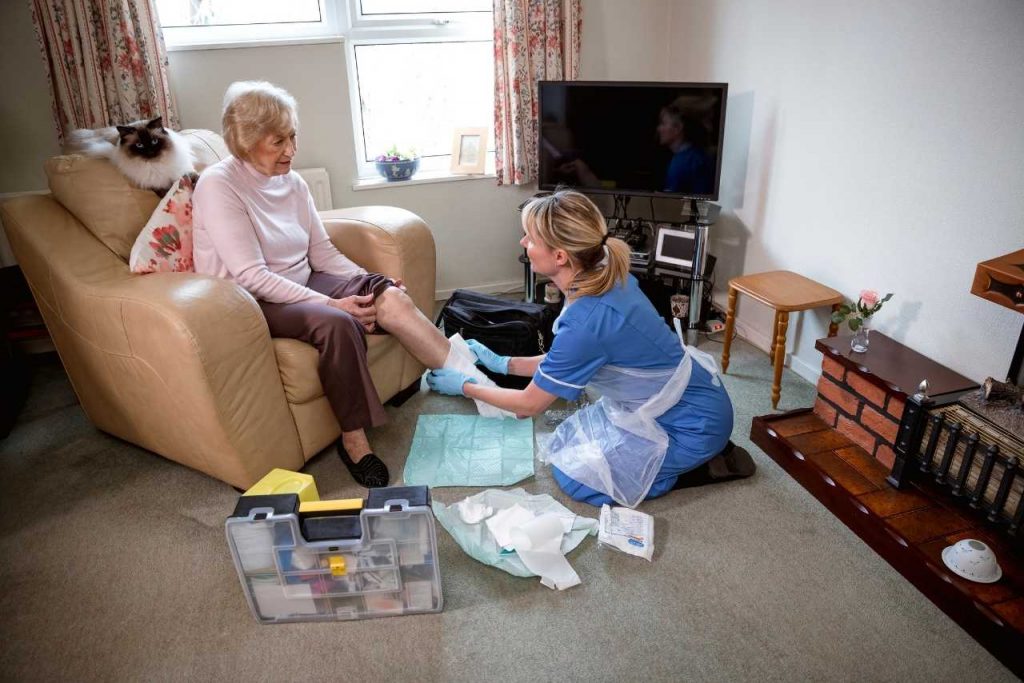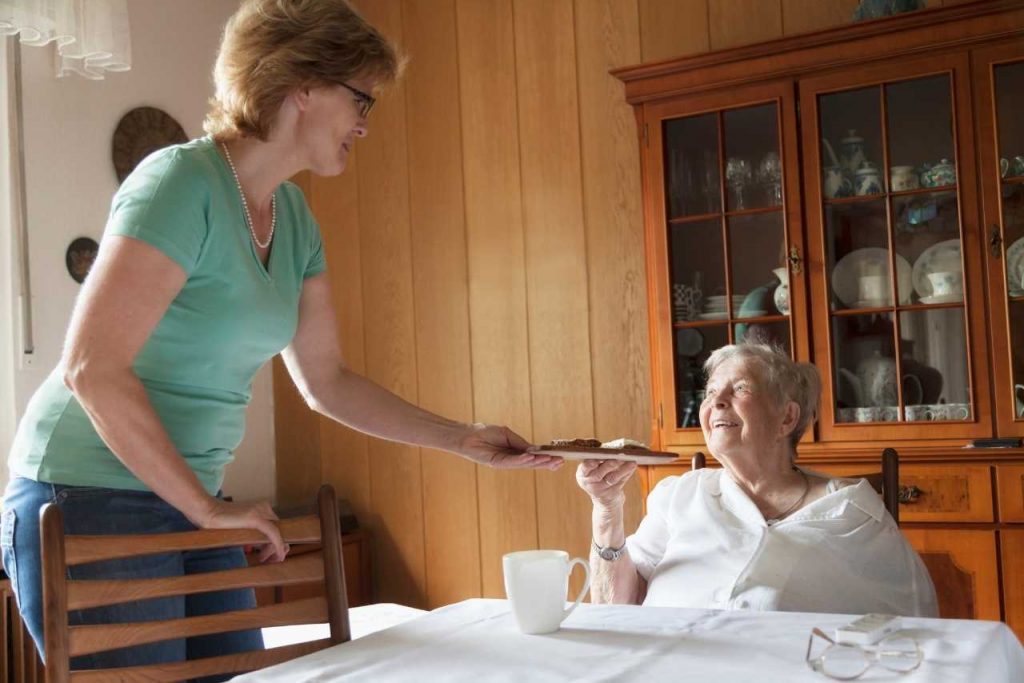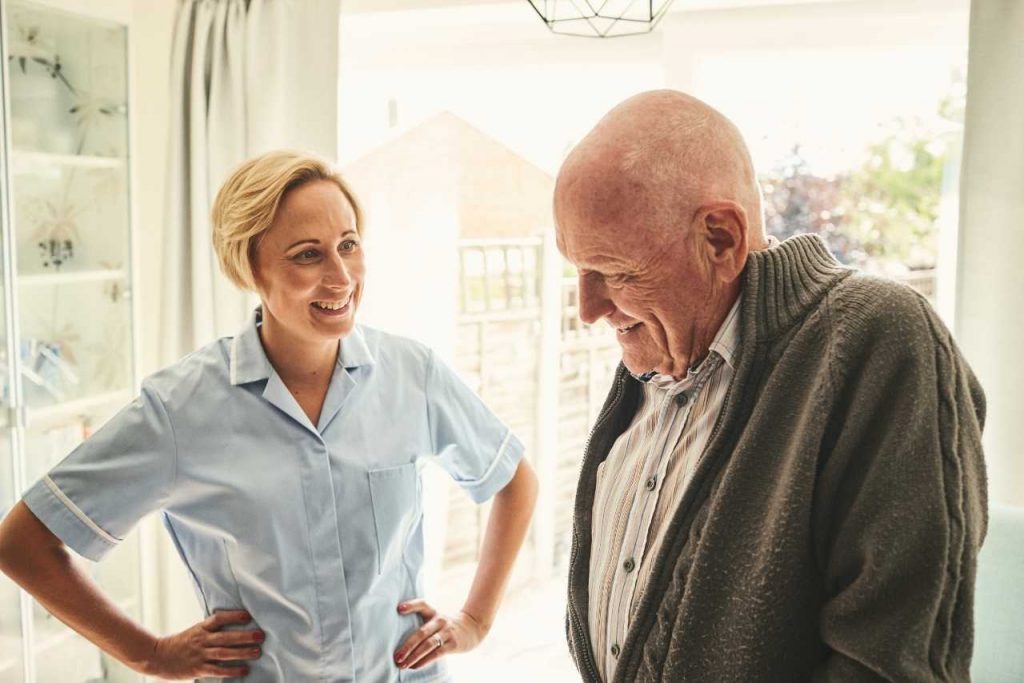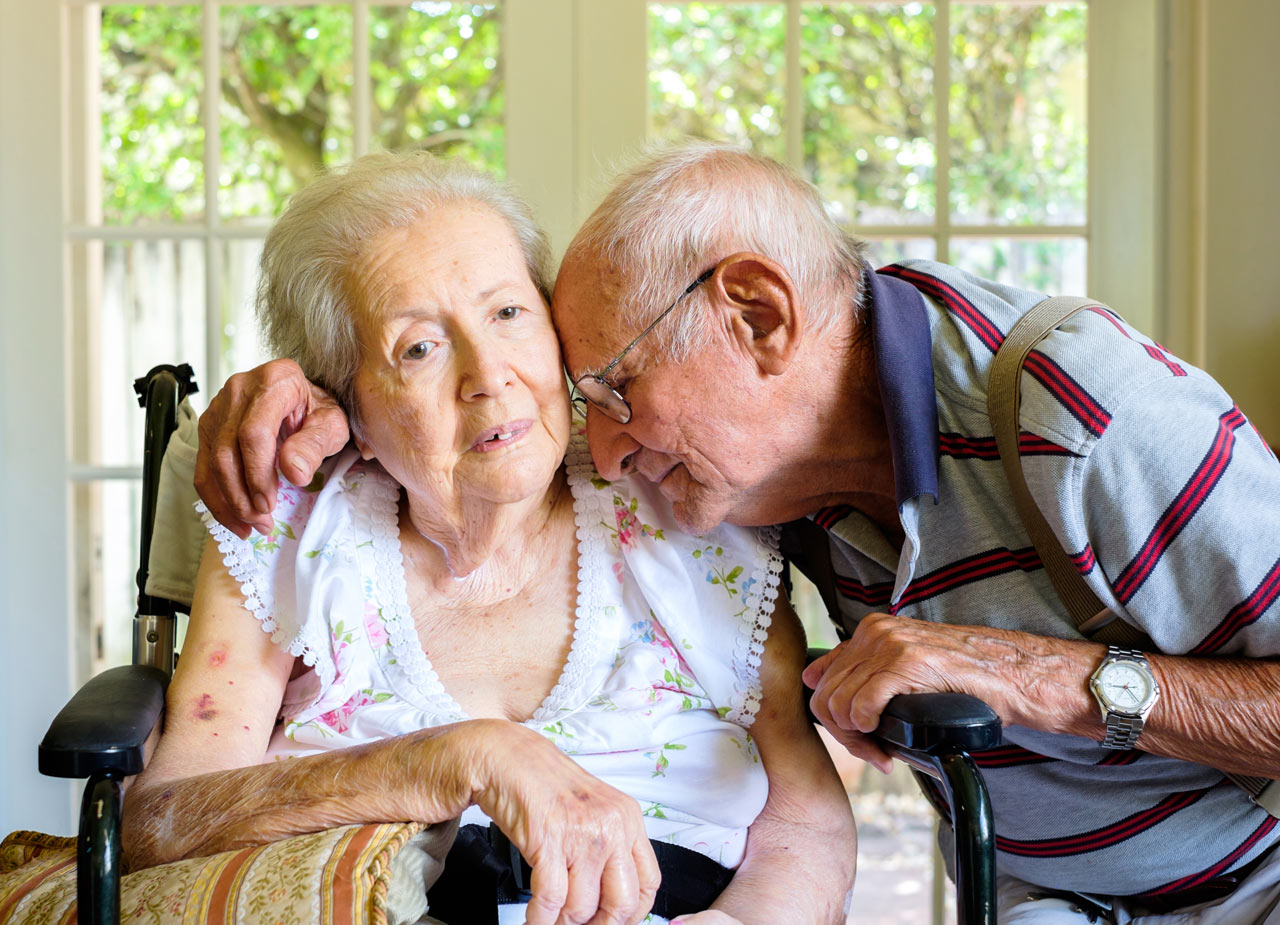Why Should You Care about Home Care?
Why is home care relevant to you?
You are not even collecting social security yet. Your senior parent is doing well. Why is home care relevant to you, you may ask.
First, services after a hospital discharge improve recovery, even if you aren’t a senior. These may include physical therapy, speech therapy, occupational therapy, nursing visits, mental health services, and family education. They may also include help in the home by a home health aide. These services are covered by your insurance, whether it is private insurance through your work, Medicaid, Obamacare, or Medicare.
Let us say that you needed surgery such as valve replacement after an infection in the heart. The discharge planner in the hospital is responsible for a safe discharge. S/he will arrange services at home. This may include nursing visits to check on you and to ensure that your spouse or family member knows how to change your IV medication. Even if you are expected to recover after a hospitalization, these services will speed your recovery. Moreover, why shouldn’t you utilize this care to improve your physical and mental health?

Surprisingly, many people do just that, seniors in particular. And that’s neither smart nor safe. A recently published study in JAMA Network Open reports that despite referrals for home health services for post-hospitalization recovery for Medicare recipients, a 2016 national study showed that only 54% of these individuals who received the referrals utilized them within two weeks after discharge! 37% never received care and 8.3% were either institutionalized or died within 14 days without receiving a home health visit (as reported by Home Health Care News, 10, 7, 2020).
Although this information is four years old, one of the authors says that this is not very different today, based on her conversations with hospital discharge planners. Poor communication between families and providers seems to be the issue. Contact information may have changed and keeping track of where patients go after discharge poses significant challenges.
The takeaway here is obvious. Make sure that the family member communicating with the discharge planner understands the information being given. And s/he must give accurate information as to where the patient is going (returning to his own home, going to a daughter’s home, or a facility) and give several contact numbers for the caregiving family member (spouse, child, niece, significant other, etc.). Give email addresses, cell phone numbers and contact preferences (text, WhatsApp, email, phone, etc.) so that there is backup.
Another challenge is that the family and the patient don’t know the difference between home care and home health care. In other words, they think that the “unskilled care”, home care provided by a licensed home care agency’s aides, is the same as home health care. It isn’t’. Home health care is skilled care (occupational therapy, nursing care, physical therapy, wound care, speech therapy, psychotherapy, and other specialty care).
Home care and home health care sound almost the same. They aren’t. The trick to remembering the difference is the word health. Home health care indicates the skilled specialty services targeted at improving patient recovery.
Here’s another tricky thing. Home health care will often include home care (the “unskilled” help) by certified aides who are often called home health aides.
Furthermore, many family members will say that they prefer to take care of their recovering loved one. Alternatively, they will say that the patient does not want strangers in the home.

These people are making a mistake. These family members do not realize that by precluding services at home, they are causing their loved one to lose several therapeutic services that will improve their recovery time. They also don’t realize how much work it takes to bathe, transfer, and monitor a recovering patient. This is the work of the aide, the “unskilled” work. These family members may burn out quickly from the burden of caregiving, which could have been shared.
The current pandemic is another imperative to care about home care. Most patients and their families do not want to go to any kind of facility now for fear of infection from Covid-19. They don’t want to go to the nursing home. They don’t want to go to rehab facilities. They don’t want to go to group homes. They don’t want to go to assisted living facilities, no matter how luxurious they are. Home care is the sensible choice and the safest choice for recovery, whether one can get skilled and/or unskilled services,

Another reason to care about home care is if you have a family member who is disabled. Whether s/he is an adult or child, insurance may cover long-term assistance or episodic home care. This is true of Medicaid and private insurance.
Another reason to care about home care when you don’t need it, is in connection with long term care insurance. Many Americans are thinking about purchasing this insurance. While it is expensive, it is an important investment to consider as life expectancy increases and medical advances develop at a fast rate.
One needs to plan for the expense of long term home care. While aging in place is the preferred option for seniors as well as the healthiest and safest from a medical and mental health perspective, it costs money to get the help in, to make home modifications, or even to downsize to a smaller home closer to family members. Purchasing long term care insurance is one way of paying for help you will need later to age at home.
Make sure that you understand the limitations of home care days, hours, and more when you research long term care policies. Most plans limit the number of days and hours you are entitled to and kick in only after a number of days of home care. The logic is that Medicare or your Medigap insurance will cover that initial period after an episode or hospitalization. Changes in long term care insurance coverage have been common in recent years as companies understand this market and home care costs better than they did earlier.

Planning for retirement is not just about bucket lists of exotic locales to visit. Consider your resources, think about your preferences, and plan for the costs of care. Many people are unaware that they can use a reverse mortgage to pay for home care. Although these mortgages got a bad reputation when they first came out, they are much safer now and offer greater protection to the senior. Another option if a home is largely paid for, is a related line of credit that one can become eligible for after age 62. With reasonable low rates and other good conditions, it is something that many homeowners do not know of.
Medicaid planning is another option. Learn the criteria for Medicaid for seniors, which usually includes long term care plus home care. You may have Medicaid, Medicare, and a Medigap plan at the same time. Medicaid actually prefers that.

New York State has just changed the rules for Medicaid coverage for seniors aged 65 and older and now requires a thirty-month look back period into finances. Nonetheless, keep in mind that NYS allows seniors to own a home, have some income as well as money in the bank, and still qualify for Medicaid and long term care under Medicaid. It designed a pioneering system many years ago for moderate income seniors to qualify for Medicaid without being destitute. There are legal ways to protect your resources and still qualify.
Caring Professionals offers free Medicaid planning assistance in conjunction with an expert outside company. There is no need to pay for this. Contact the best, most comprehensive home care company, Caring Professionals, to learn more about home care and the various ways to finance it.






